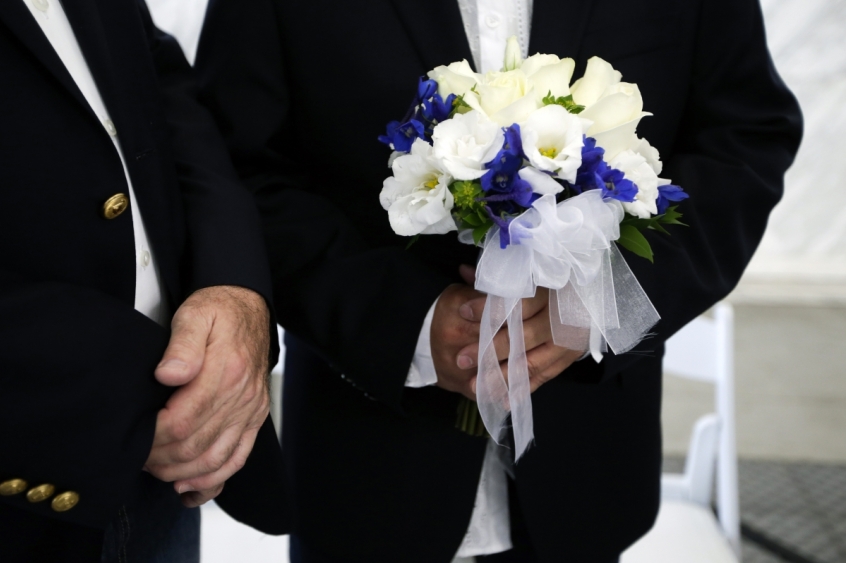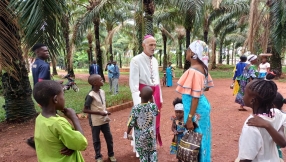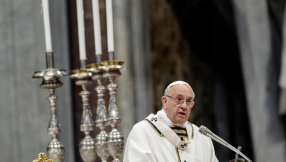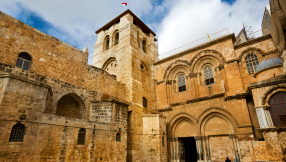
An unprecedented legislative event will be taking place in Croatia on December 1 on a provision in the constitution that would clearly define marriage as "a living union of a woman and a man".
Although the small Mediterranean coastal country has held four other referendums since it declared its independence from Yugoslavia 22 years ago - on independence, labour law, EU membership, and constitutional reform - none have managed to gather the necessary signatures from more than 10% of the population so quickly.
The "In the Name of the Family" citizens' initiative, to have a referendum on the question of whether to define marriage as "a life union of a woman and a man", managed to gather more than 750,000 signatures in less than two weeks. That represents more than 20% of the population, more than double the minimum required for a referendum.
There is widespread support for the referendum, with five parliamentary parties, 15 non-parliamentary parties, numerous NGOs, and many private families and individuals all calling for it to go ahead. However, the Croatian political elite have been vigorous in their opposition.
In 2011 the Croatian government announced that the legal recognition of same sex unions was a priority, but this did not sit well with the wider population. Lino Zonjić, one of the organisers of the initiative, is quoted as saying "the voters are very sensitive to the latest attempts of the current government to redefine marriage, family, and thus the entire society by imposing the equalisation of homosexual relationships with marriage".
Attempts have been made to stop the referendum, with one incident in June 2013 where the government claimed that 750,000 signatures was insufficient to warrant one, although it failed to supply any reason for its position.
The Minister of Social Politics and Youth, Milanka Opačić, expressed his frustration at the fact that Croatians "will unfortunately spend almost a monthly amount of social benefits on a completely unnecessary referendum".
The Prime Minister of Croatia, Zoran Milanović, called the entire initiative "completely pointless" and went even further, saying that "this will be the first and last time that such a referendum is announced", a statement that he has no legal authority to make, since the Prime Minister is not granted power to prevent the subjects of future referendums.
Croatian MEPs have expressed disappointment at the emergence of this referendum. Sandra Petrović Jakovina, the youngest MEP of the Social Democratic Party of Croatia reacted: "It is shameful that the first citizen's initiative of my home country is one which seeks to limit other people's rights.
"However, I am very glad our President, Prime Minister and Minister for Foreign Affairs said they would vote 'No' in this referendum. I certainly hope that the sensible majority will stand up for the rights of minorities, and that the referendum will be rejected in the end."
Nikola Vuljanić, another Croatian MEP and a member of the Committee on Foreign affairs, added: "I am concerned about this referendum which threatens to put minorities in a less favourable position than they currently enjoy… Of course, this referendum is organised within the remit of the law. But the fact that it is legal does not mean it is just. Putting issues of basic human rights to vote is a very dangerous move."
Ulrike Lunacek MEP, Co-President of the Intergroup on LGBT rights, concluded: "Croatia has come a long way in recognising minorities and their rights. I have no doubt that, whatever the outcome of this referendum, equality and justice will prevail in the end."
But those who organise the referendum say that there is no danger to anyone's rights as part of this move. "We are satisfied that the laws and the Constitution of Croatia guarantee the protection of civil and human rights of all citizens of the Repuiblic of Croatia, irrespectively of their nationality, religious affiliation or sexual orientation," said Eljka Markić, a representative of the initiative.
"We respect the dignity of each and every person and feel that it is precisely with an opportunity for the citizens to express their view on such an important aspect of the society as marriage, in a most democratic of all procedures – a referendum – that justice will be confirmed as the very basis of permanent piece in the Croatian society."













